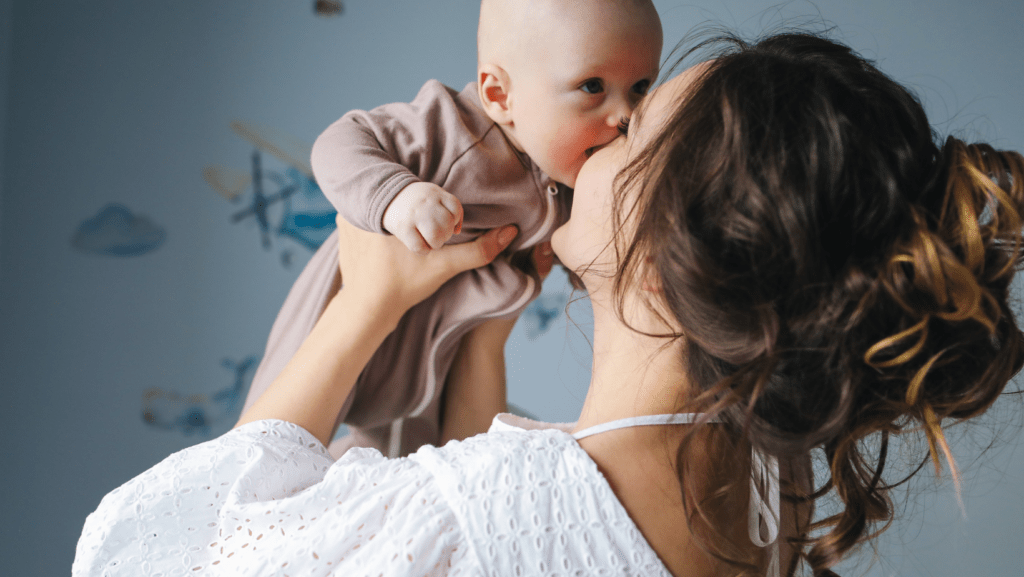
Among the countless responsibilities that come with raising a child, one often overlooked but crucial aspect is the happiness of mother. A mother’s happiness matters in a child’s development and well-being.
A mother’s emotional well-being is not just essential for her own health but also plays a pivotal role in shaping her child’s development.
Parenting is one of the most profound and challenging roles a person can undertake.
In this article, we’ll explore how the happiness of mother influences her child’s growth, behavior, and overall well-being.
Must Read- Why it is Important to Learn Parenting
Emotional Security and Bonding
A mother’s happiness directly contributes to the emotional security of her child.
When a mother is content and emotionally stable, she is better equipped to provide the love, attention, and nurturing that her child needs.
This secure attachment forms the foundation for the child’s emotional development, fostering trust and safety.
She can be better invested in the child’s development.
A happy mother is more likely to engage in positive interactions, such as playing, hugging, and talking to her child, which strengthens the emotional bond and enhances the child’s sense of security.
You might like to read- The Important Lesson Must Teach Next-Generation

Modeling Positive Behavior
Children learn by observing their parents. A happy mother often models positive behavior, showing her child how to handle stress, manage emotions, and approach life with optimism.
These behaviors are crucial life skills that children absorb and replicate in their own lives.
A mother who demonstrates resilience, joy, and kindness is teaching her child the importance of these qualities, setting them up for healthier relationships and a more positive outlook on life.
In other words, she models positive reinforcement in her child, and all these are reflected in a child’s emotional regulations
Influence on Cognitive Development
Research has shown that a mother’s mental and emotional well-being can significantly influence her child’s cognitive development.
Stress, anxiety, or depression in a mother can lead to a less stimulating home environment, which may hinder a child’s intellectual growth.
Conversely, when a mother is happy and mentally healthy, she is more likely to engage in activities that promote cognitive development, such as reading, playing educational games, and encouraging curiosity.
Related Article- 7 Activities for Emotional Regulation in Children
Social Skills and Relationships
A mother’s happiness also impacts her child’s social development.
Children who grow up in a positive and nurturing environment tend to have better social skills and are more adept at forming healthy relationships.
A mother who is emotionally balanced can guide her child in navigating social interactions, teaching them empathy, cooperation, and conflict resolution.
This support is crucial for children as they begin to interact with peers and form friendships. This will also help them in their adult life and can manage their relationships better and effectively.
Physical Health and Well-being
The link between emotional and physical health is well-documented. A mother’s happiness can contribute to a healthier lifestyle for both her and her child.
A happy mother is more likely to prioritize a balanced diet, regular exercise, and sufficient sleep for her family.
These healthy habits are crucial for a child’s physical development and overall well-being.
A happy mother increases the quality and quantity of child investment
Home Environment and Relation with Partner
The reduction of stress in the home environment can lead to lower stress levels in the child, which is beneficial for their physical and cognitive health.
It includes the relationship between the family members and the mother and the relationship between the mother and her partner.
A healthy relationship with her partner makes a positive impact on a mother and her overall well-being which directly affects the child. Being in sync with a spouse plays a crucial role in cultivating happiness within a relationship.
When both partners are attuned to each other’s needs, emotions, and goals, they create a strong foundation of mutual understanding and support.
This alignment fosters a deep connection, making it easier to navigate parenting challenges together and celebrate successes.
A relationship where both partners are in harmony not only enhances personal (both mother and father) happiness but also strengthens the bond between them, leading to a more fulfilling and enduring partnership in parenting.
Related Article- Father’s Role in Parenting
Breaking the Cycle of Stress and Negativity
One of the most significant benefits of a mother’s happiness is breaking the cycle of stress and negativity that can be passed down through generations.
Children raised in a stressful or negative environment may carry those experiences into adulthood, affecting their own parenting styles.
However, a happy mother can create a positive cycle by fostering a supportive and loving environment, which her child is likely to replicate in the future.
You might like to Read- Does Old Parenting Style Still Relavant?
Conclusion
A mother’s happiness is not a luxury but a necessity for the healthy development of her child.
By prioritizing her emotional well-being, a mother not only improves her own quality of life but also sets the stage for her child’s success in every aspect of life—emotional, cognitive, social, and physical.
In the journey of parenting, taking care of oneself is an essential step in taking care of one’s child. Remember, a happy mother raises a happy, and healthy child.
Thank you for reading this article. Please share your experiences and questions with us. Your words are precious to us.
If you get value to this article please share it with other parents who need to read this.
Happy Parenting
Very good article for self care. I find this article one sided for mothers only.
We live in an era where responsibility is equally divided between a mother and a father. I would like to request you to post an article for father as well.
Of course, father do not go through PPD; however, that mood swings directly affect husbands too.
I agree with Me-Time analogy as it helps to reconnect something that you have lost over time.
Great work again 👏👏
Thank you for your valuable words. I also agree with you that in parenting the role of falther is much vital. This article is for mothers to understand their own feelings because many times she doesn’t know why this all happen to her and eventually it affect the whole family.
I assure you that I’ll add topics on father in my upcoming article.